Crash course de 5 días
Fechas: 12-17 de mayo y octubre (a definir)
Crash course de 5 días
La Agricultura Regenerativa es una nueva forma de considerar la producción de alimentos, y está desarrollándose rápidamente.
En varias partes del mundo, hay profesionales jóvenes y valientes trabajando duro para desarrollar nuevas prácticas y valores que ayuden a fincas y granjas a regenerar el paisaje y los suelos.
Si eres relativamente nuevo/a en este campo y te gustaría experimentar qué puede significar para ti, has acudido al sitio adecuado.
Dos veces al año (primavera y otoño) brindamos este curso!
Una jornada de aprendizaje in situ sobre la agricultura regenerativa
¿CÓMO ES LA SEMANA?
Creemos que la mejor forma de aprender sobre Agricultura Regenerativa no es solamente aprendiendo sobre una serie de conceptos, sino experimentando realmente con tus propios ojos, oídos y olfato lo que es la agricultura regenerativa y lo que puede hacer por ti y por el planeta. También creemos que es clave conectar con líderes pioneros en este campo. Por ello, hemos diseñado esta semana para que hagas justo eso.
¿QUÉ VOY A APRENDER?
-
La mentalidad & principios de la Agricultura Regenerativa.
-
El problema: sin corregir el rumbo actual, ¿cómo sería el futuro de la agricultura en el contexto Mediterráneo?
-
Prácticas regenerativas para mejorar el suelo, la gestión del agua y la biodiversidad.
-
El proceso: cómo pasar de convencional (orgánico) a renegerativo.
-
La importancia de la Inspiración.
-
Cómo conectar fincas y negocios.
-
Cómo integrar prácticas regenerativas en tu propio negocio.
¿ES esto PARA MI?
Este programa es accesible para cualquiera: ya seas un/a experimentado/a agricultor/a (convencional u orgánico/a), estés en redes de negocios alimentarios, o simplemente seas un/a amante de los alimentos y la tierra.
Si ya estás familiarizado/a con la Agricultura Regenerativa pero sientes que las piezas del puzzle todavía no están unidas, esta jornada intensiva puede que sea lo que necesitabas.
ALOJAMIENTO
Durante la semana te alojarás en nuestra hermosa casa solariega de Cehegín (a 30 minutos en coche de la finca). Esta casa ha pertenecido a la familia durante más de 500 años y muestra la historia del territorio y de la finca a lo largo de los años. La cena está incluida los lunes y viernes por la noche. Las demás noches son libres para explorar el pueblo y degustar algunos alimentos locales.
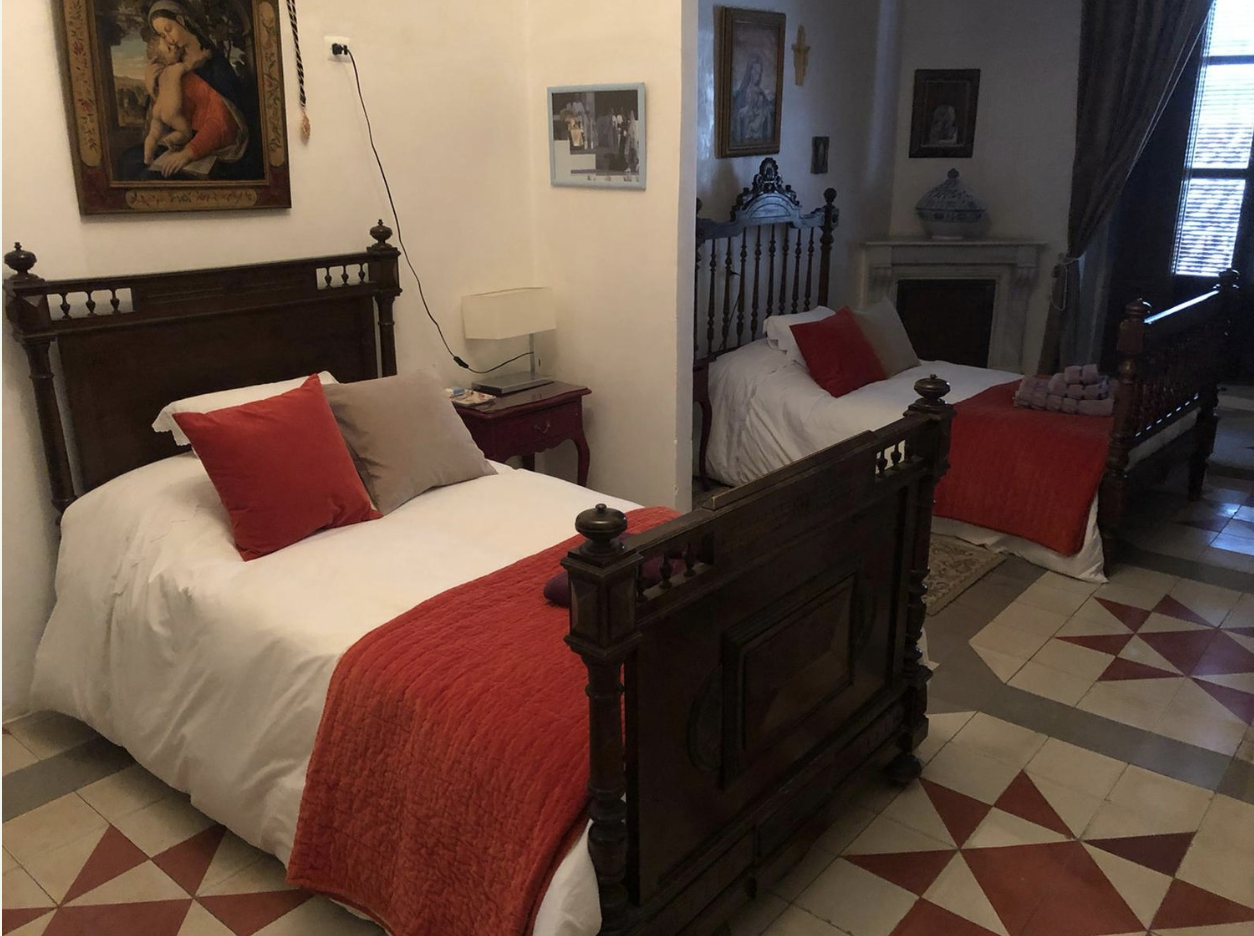
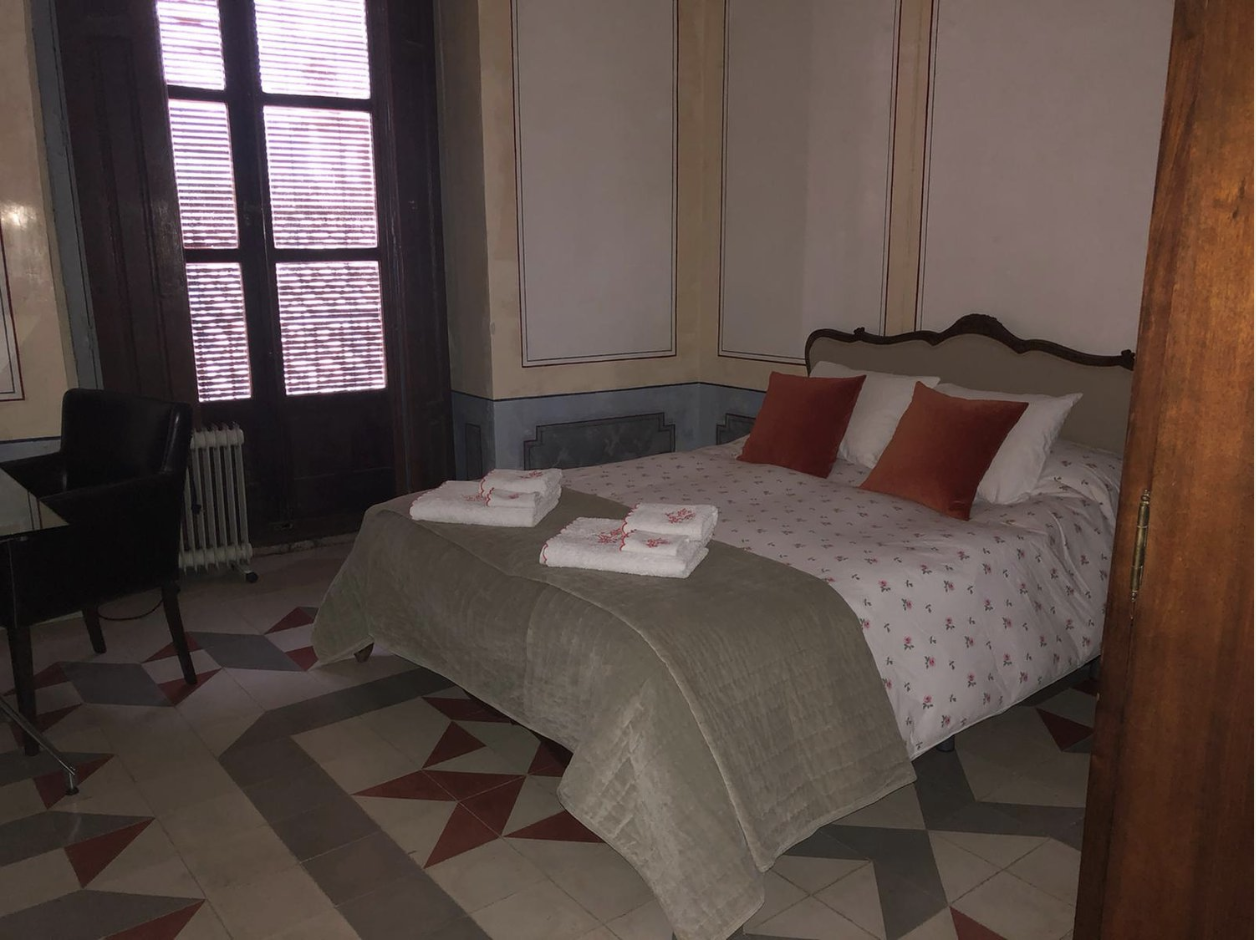
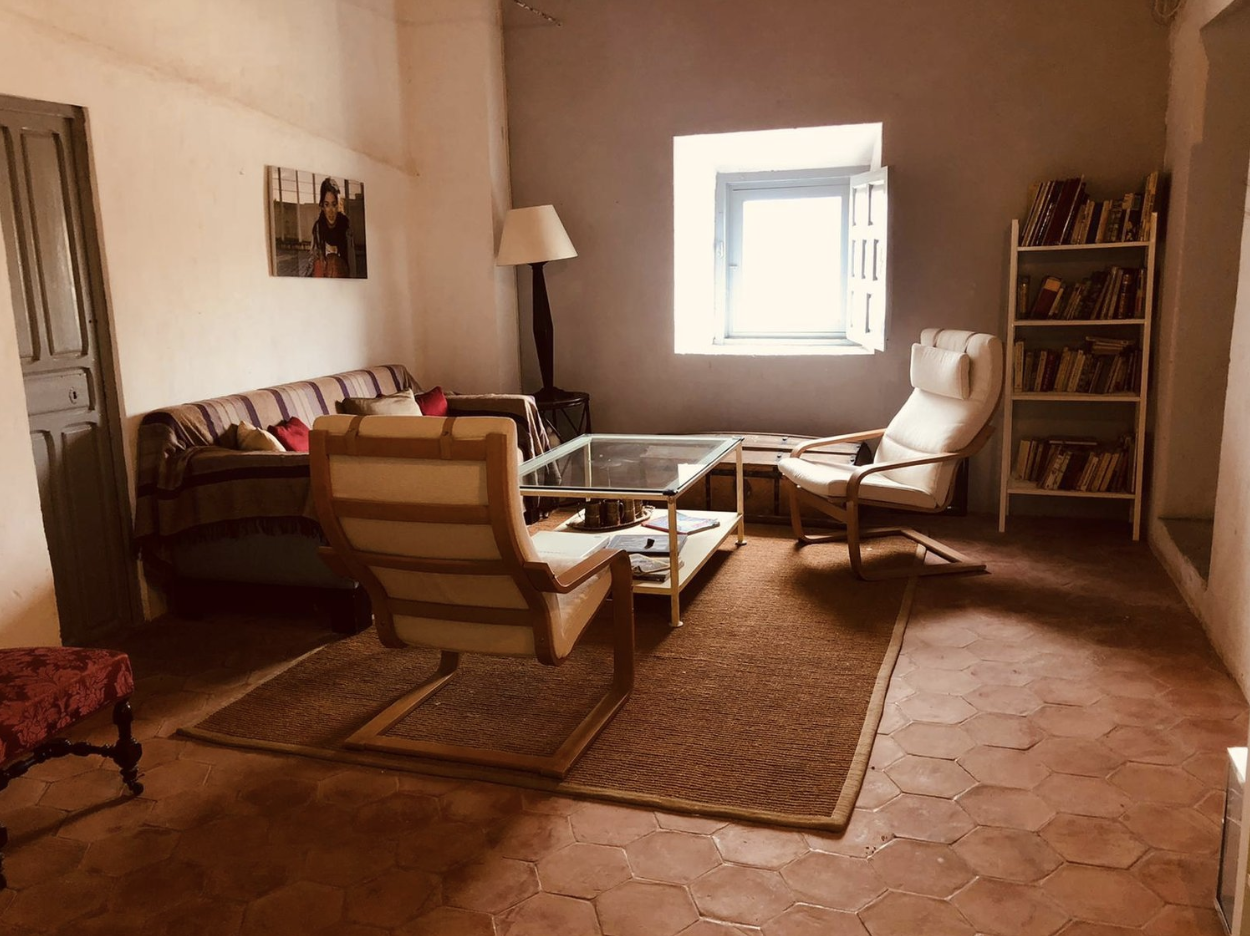
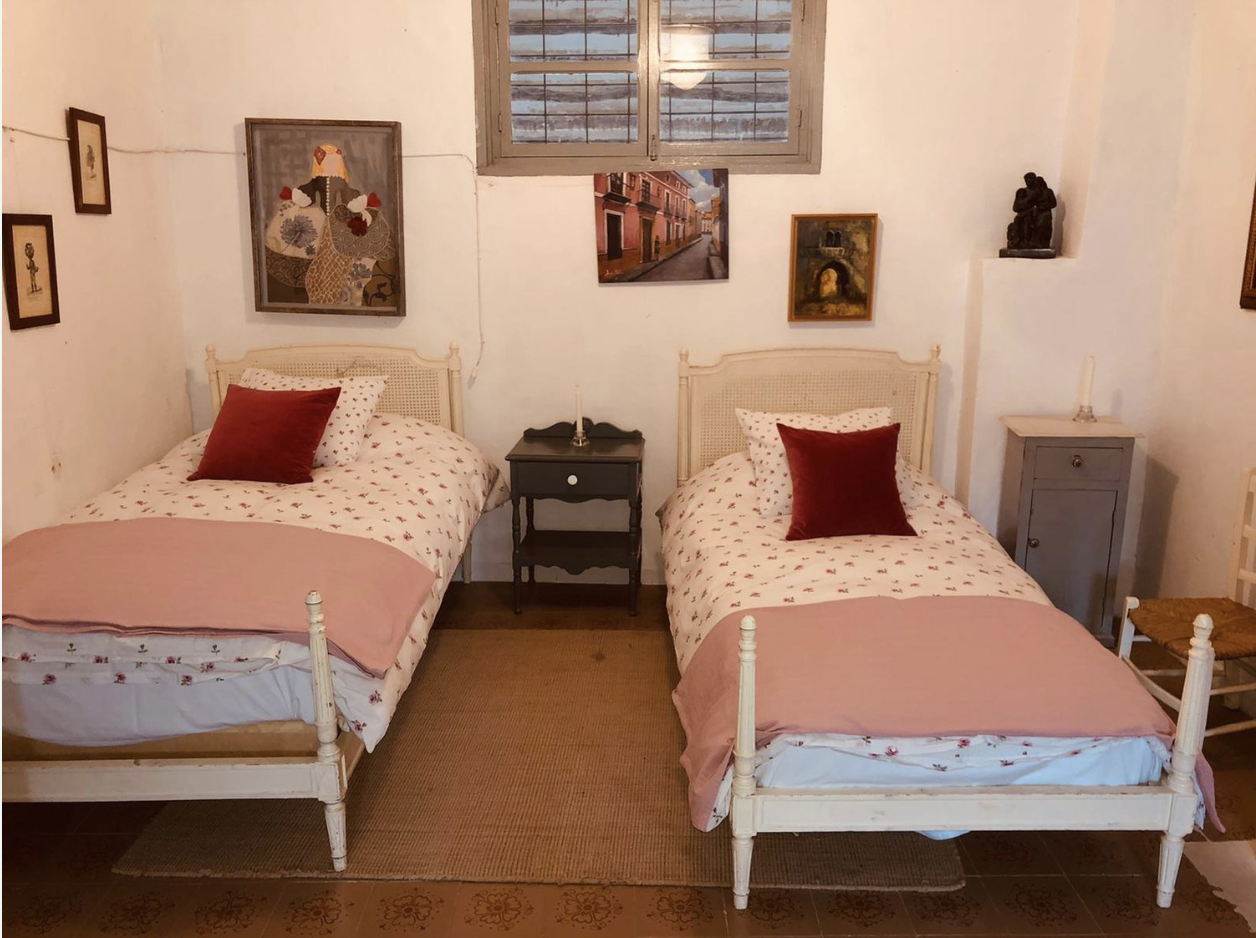
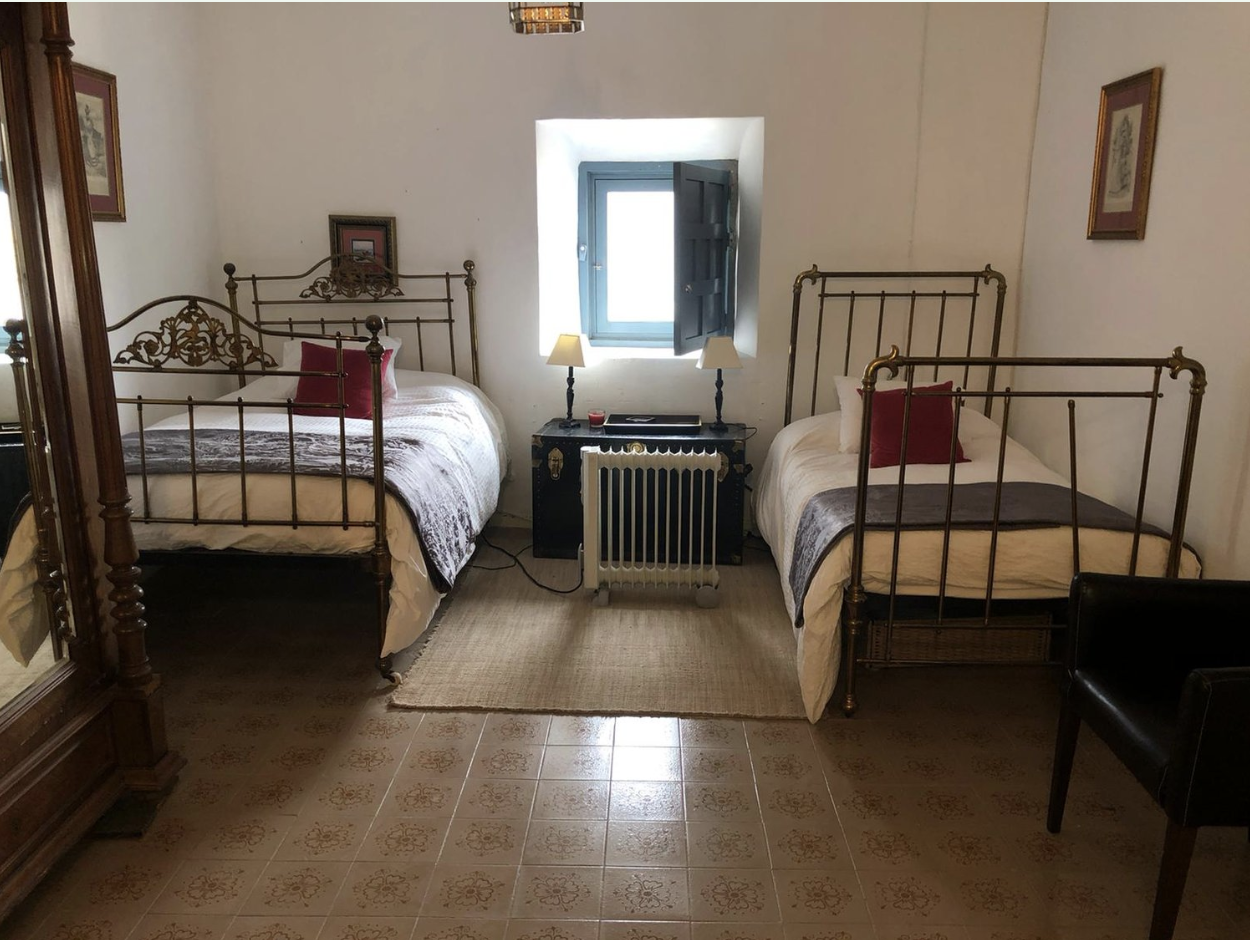









DURANTE ESTA SEMANA:
-
Recibirás charlas diarias, talleres y formación en campo
-
Tendrás derecho a 3 comidas orgánicas al día preparadas por chefs locales
-
Te llevarás un kit de regalo con productos de la finca.

LOCALIZACIÓN
Murcia, España
FECHAS
22 – 27 de Mayo
PARA QUIÉN
Profesionales (agricultura/business/ONGs) con intereses en los principios, técnicas y prácticas usadas en la agricultura regenerativa
TAMAÑO DEL GRUPO
10-15 personas
IDIOMA
Español
PRECIOS
€1300,- p.p. (habitación compartida y baño)
€1500,- p.p. habitación privada y baño)
€2400,- para una pareja
Quiero registrarme
Ponte en contacto con:
jacobo@regeneration-academy.org
Programa
LUNES
-
Llegada y cena
MARTES
-
Introducción a la agricultura regenerativa & principios
-
Tour por la finca y coloquio con Alfonso (agricultor)
-
Desafíos en la transición hacia un manejo regenerativo
MIÉRCOLES
-
Manejo regenerativo del suelo
-
Técnicas y prácticas
-
Taller de procesamiento de manzanas
-
Manejo regenerativo del agua
-
Técnicas y prácticas
-
Cómo diseñar charcas, “swales” y trampas de sedimentos
Jueves
-
Manejo regenerativo de la biodiversidad
-
Técnicas y prácticas
-
Excursión a una granja local de abejas y a una finca hortícola regenerativa
Viernes
-
4 retornos y negocios regenerativos
-
Modelo de pensamiento: “regenerative business”
-
¿Cómo aplicar todo esto a tu propio proyecto?
-
Cata de vino regenerativo y coloquio con la productora del vino
Sábado
-
Desayuno final
TESTIMONIAL

NATHALIE NAHAI
Where to start? I signed up for the Regeneration Academy’s one-week crash course, with the intention of gaining some practical knowledge and hands-on experience of what regenerative agriculture is, and how it can be used to restore ecosystems and food networks. In reality, it turned out to be so much more than this – it was one of the most transformative, memorable and joyful courses I’ve attended. The team was generous, open-hearted and welcoming, the food was a delight, and we came away feeling emboldened and optimistic as to the futures we can create when we work together towards a common goal. It was an extraordinary experience, and one which I can’t recommend highly enough.

RUBY & CHRISTABEL REED
The @regenerationacademy at @lajunquera are experimenting with, engaging in and researching regenerative agriculture in their 1700 hectare farm. They are brave and immensely inspiring, working at scale in one of the most impoverished parts of Spain where the land is being desertification by the climate and by conventional agriculture, as well as by the people and communities that used to inhabit it. This incredible community is proving that it is possible, even if not straightforward or simple, to transition to agricultural practices that revitalise both the planet and people. Last week we learnt about the power of context, complexity, culture and community ”

Arno Foppe
My research project at La Junquera made me experience the reality of regenerative farming and gave me the opportunity to contribute to the next steps on the farm.

— Paulina Binsfeld - de Bus
“Doing my thesis at La Junquera has broadened my perspective on regenerative farming a lot. Because it is such a big farm, I got the opportunity to learn about all the different elements of regeneration, not just the agriculture part. Living here and seeing the day-to-day activities showed me that nothing is perfect, it’s a constant trial and error, not a pristine concept. I also learned a lot about what my role can be in a community and what elements I want to take with me when starting my own farm one day.””

Sofía and Pablo
In this course, we learned about the regenerative model, a model that proposes a paradigm shift in the current agricultural system and that involves the commitment and fight against the loss of biodiversity, climate change and desertification. Through small seminars, debates, and above all, visits to the field, one knows first-hand what day-to-day life is like in the field and how to make a living from the regenerative business.
The course is taught by professionals in the field, who are the living example of the wealth that is generated there. Highly recommended for anyone who wants to make a living from agriculture, for environmental researchers, or simply for curious people who want to rediscover nature

Arizona Muse
“There’s a whole world beneath our feet that must be understood and nurtured, because most of what we need in life comes from the soil, grown for us by farmers. When constantly faced with the looming effects of climate change it is the most refreshing feeling to meet people who are working towards the solution. And not only that, but also teaching others how they can help to heal the planet too. Here on @lajunquera farm at the @regenerationacademy, we spent a week learning about Regenerative Farming with our hands, ears, eyes and noses.”
TESTIMONIAL

Arizona Muse
“There’s a whole world beneath our feet that must be understood and nurtured, because most of what we need in life comes from the soil, grown for us by farmers. When constantly faced with the looming effects of climate change it is the most refreshing feeling to meet people who are working towards the solution. And not only that, but also teaching others how they can help to heal the planet too. Here on @lajunquera farm at the @regenerationacademy, we spent a week learning about Regenerative Farming with our hands, ears, eyes and noses.”

Sofía and Pablo
In this course, we learned about the regenerative model, a model that proposes a paradigm shift in the current agricultural system and that involves the commitment and fight against the loss of biodiversity, climate change and desertification. Through small seminars, debates, and above all, visits to the field, one knows first-hand what day-to-day life is like in the field and how to make a living from the regenerative business. The course is taught by professionals in the field, who are the living example of the wealth that is generated there. Highly recommended for anyone who wants to make a living from agriculture, for environmental researchers, or simply for curious people who want to rediscover nature

FINN HARRIES
“I spent an amazing week at the Regenerative Academy in Murcia, Spain to complete a crash course in regenerative agriculture. This is part of my research for my masters degree at Cambridge University. I loved learning the basics of soil health, water capture, food harvesting and composting. 🌱 The course is run on a massive 1,100 hectare farm that used to practice traditional industrial agriculture but now is leading the way in regenerative practices in the fight against climate change and biodiversity loss.”

NATHALIE NAHAI
Where to start? I signed up for the Regeneration Academy's one-week crash course, with the intention of gaining some practical knowledge and hands-on experience of what regenerative agriculture is, and how it can be used to restore ecosystems and food networks. In reality, it turned out to be so much more than this - it was one of the most transformative, memorable and joyful courses I've attended. The team was generous, open-hearted and welcoming, the food was a delight, and we came away feeling emboldened and optimistic as to the futures we can create when we work together towards a common goal. It was an extraordinary experience, and one which I can't recommend highly enough.

RUBY & CHRISTABEL REED
The @regenerationacademy at @lajunquera are experimenting with, engaging in and researching regenerative agriculture in their 1700 hectare farm. They are brave and immensely inspiring, working at scale in one of the most impoverished parts of Spain where the land is being desertification by the climate and by conventional agriculture, as well as by the people and communities that used to inhabit it. This incredible community is proving that it is possible, even if not straightforward or simple, to transition to agricultural practices that revitalise both the planet and people. Last week we learnt about the power of context, complexity, culture and community ”
